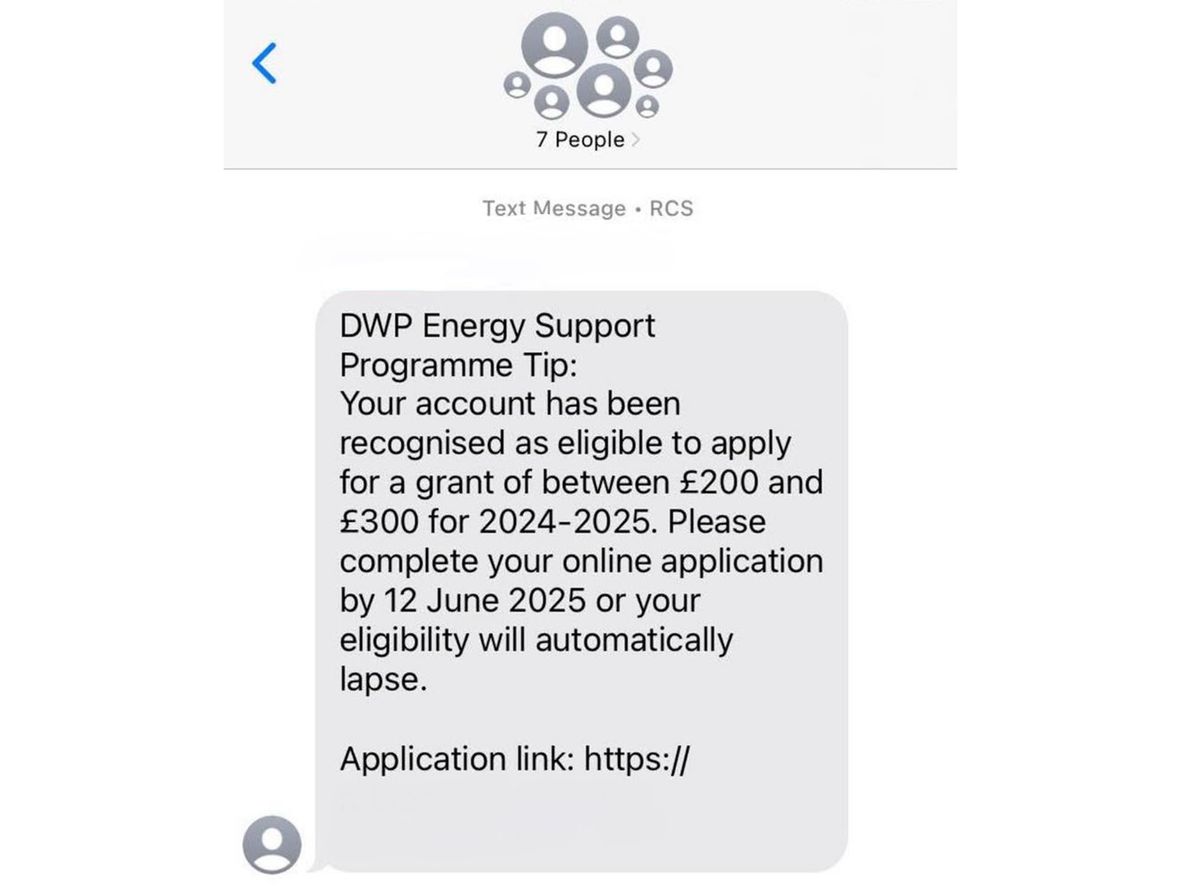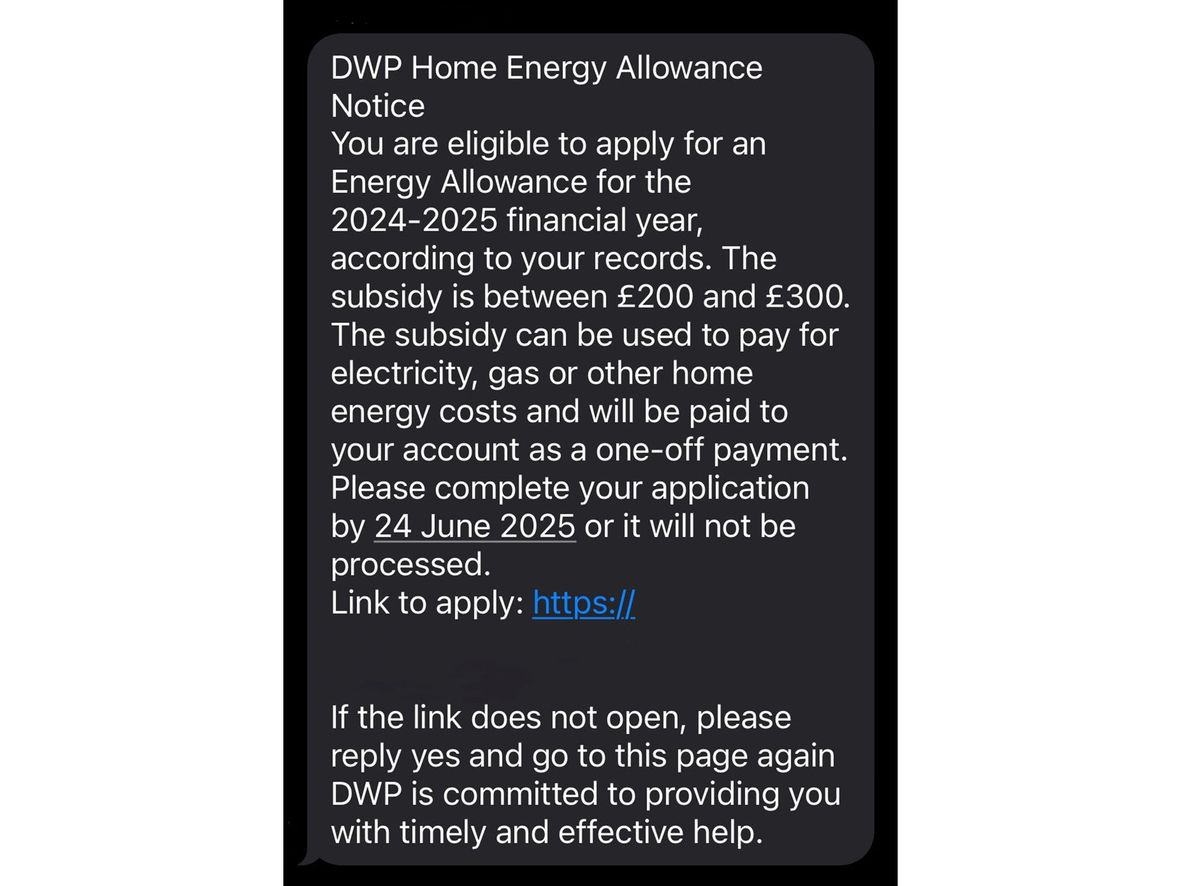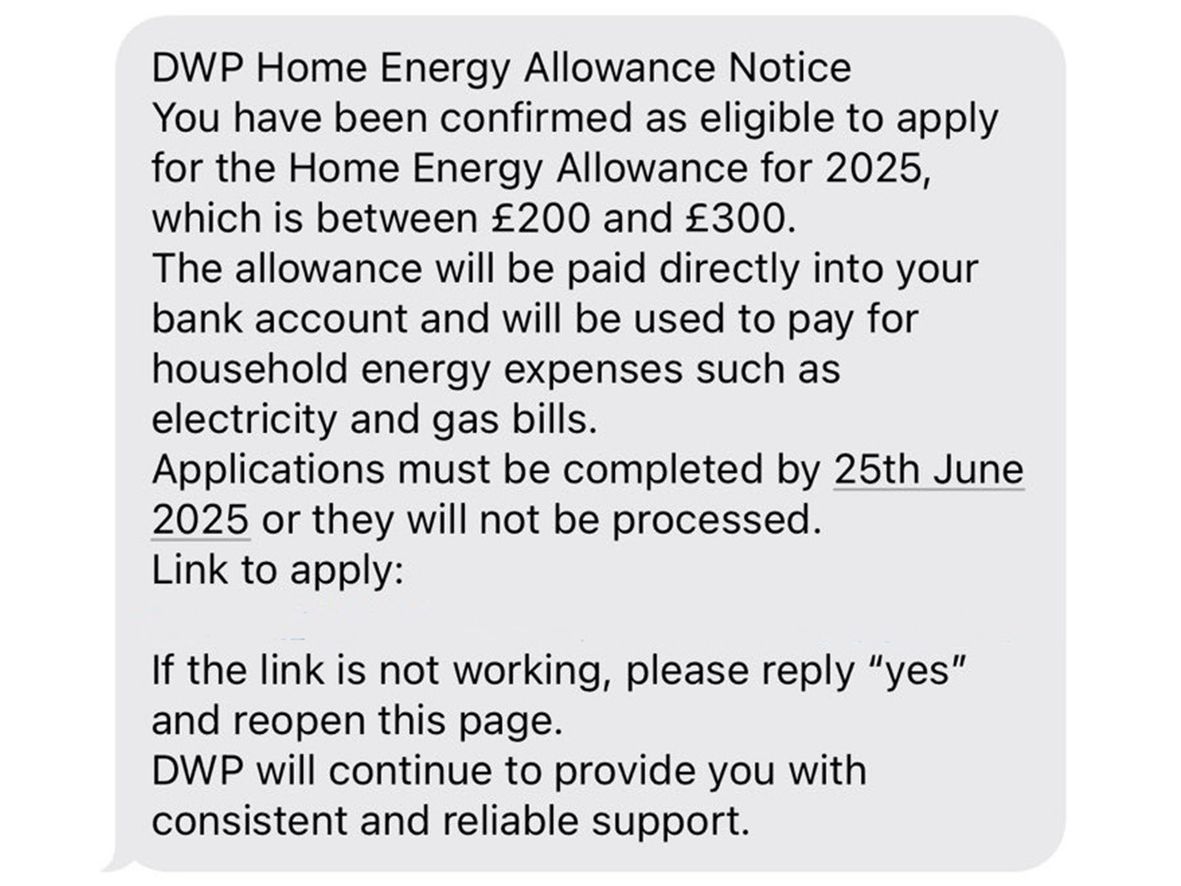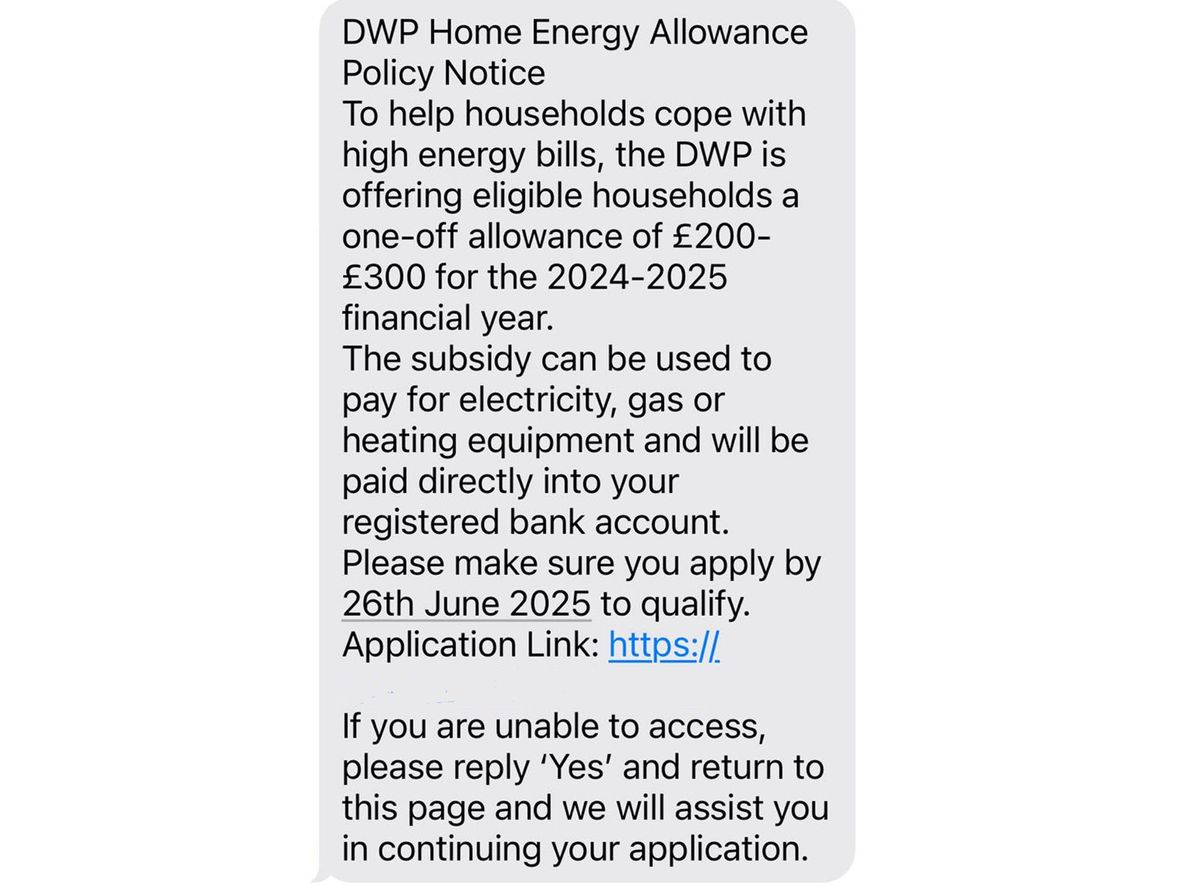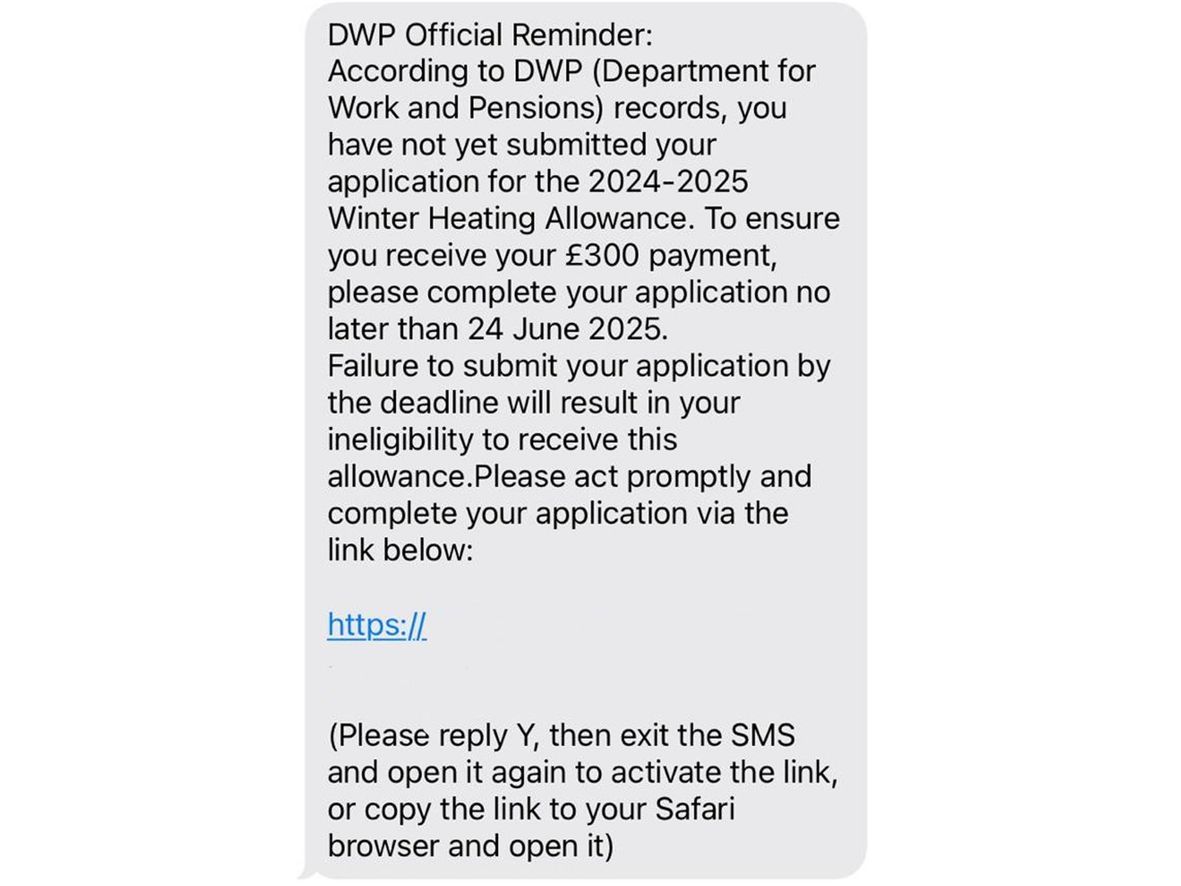Watch out for fake 'energy support' scams

Following the recent Winter Fuel payment announcements, scammers have been busy impersonating the Department for Work and Pensions (DWP) to trick recipients out of personal and financial information.
Which? has seen several messages claiming to be from DWP that offer various grants for energy costs. All the text messages include scam links to websites designed to steal your personal and financial information.
The Winter Fuel Payment is only paid to those over the State Pension age in England and Wales with an income of £35,000 or less a year. The payment will be made automatically this winter and will be £200 per household, or £300 where there is someone over the age of 80 living in the home.
Read on to discover the various versions of scam texts impersonating the DWP.
Sign up for scam alerts
Our emails will alert you to scams doing the rounds, and provide practical advice to keep you one step ahead of fraudsters.
Sign up for scam alerts
DWP scam texts
In some messages, recipients are added to a group text message with numerous other recipients, in others, the text is sent from a mobile number that has been hijacked by the scammer, known as 'spoofing'.
The messages claim to offer either a ‘winter heating allowance,’ ‘energy allowance,’ ‘home energy allowance’ or a grant as part of ‘DWP energy support programme'.
The texts also claim that you’re eligible to receive £200 to £300 under one of these schemes.
You’re then asked to follow a link to complete your application and given a tight deadline to do this. Some of the texts disguise the dodgy link by using a URL shortener, which is a tool that converts a long web address into a shorter one and is often used by scammers to disguise their dodgy website.
These links will lead to malicious websites impersonating the government in order to steal your financial and personal information.
What is the energy rebate scheme?
The government offers financial support to those on benefits or who have a low income.
The schemes it offers are:
- the Warm Home Discount Scheme, which will reopen in October 2025
- energy-saving improvement schemes which you can apply for on the official government website
- home energy support payments, which you can also apply for on the official government website
Spotting and reporting scam texts
If you receive a suspicious text, here’s what to look out for:
- Messages from unknown numbers
- Requests for personal and financial information
- Texts which include links
- Poor spelling and grammar
- Being pressured to take action quickly
You can report scam texts by forwarding the message for free to 7726.
If you lose any money to a scam, call your bank immediately using the number on the back of your bank card. Also report it to Action Fraud, or call the police on 101 if you’re in Scotland.

